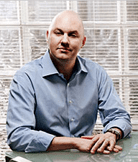At the beginning of the year, super investors Ron Conway and Yuri Milner created the controversial Start Fund to invest in every new Y Combinator startup. They offered each YC startup to graduate from Paul Graham’s rigorous selection process $150,000 in an uncapped convertible note with no discount. Some venture capitalists didn’t like the precedent this set. But at least one more big one, Andreessen Horowitz, is jumping on board and joining the Start Fund.
Going forward, Andreessen Horowitz will contribute $50,000 of that $150,000 to each YC startup that chooses to take the deal (and so far, most of them have). “It will start with the next cycle,” Marc Andreessen tells me. With more than 60 startups per class and growing that comes to $3 million in commitments per class for each of the three investment partners in the Start Fund.
Is it really a good idea to invest blindly in a group of companies without any vetting? “What you have with YC is a special situation,” explains Andreessen. “it is a very high quality set. Paul just impresses the hell out of us in terms of quality and the results he has had. Our view is he is running such a good selection process that an investment in this group is a good idea.” Andreessen Horowitz is already an investor in some larger YC alums such as Airbnb, Bump, and Likealittle.
The competition for deal flow is so intense now that VCs need to get in earlier and earlier to compete effectively with all of the angel money still sloshing around. Andreessen looks at seed investing as a way to explore later investments and get to know companies early on. The earlier a VC puts money into a deal, the more they will make if the company turns out to be a hit. Vinod Khosla takes a similar approach in terms of trying to invest as early as possible (but without writing blank checks).
With Andreessen Horowitz handing out checks, the notion of a cash crunch seems far-fetched. Except that it is not so simple. The crunch is definitely not at the seed stage, rather it is at the A round. “I don’t think there is a cash crunch,” says Andreessen. “There is no sign of a cash crunch at the seed stage. I think the crush will be at the next stage, seed going to venture.”
The number of active VCs doing A and B rounds is actually getting squeezed. Second and third tier limited partners (the institutions which invest in VC funds) are themselves feeling the squeeze from the public markets, and those are the ones who normally invest in second- and third-tier VC funds. So all the money is flowing to fewer top-tier funds who actually are showing returns over the past 5 to 7 years. Increasingly, those top tier funds are the ones which get in at the seed stage and are there to back companies all the way to billion-dollar rounds, doubling down every step of the way. Most startups, of course, won’t ever get past the seed stage. But big boys like Andreessen Horowitz, which manages $1.3 billion overall, (and Milner and Conway) can afford to lose $50,000 a pop for the option to find the next Dropbox or Airbnb.
